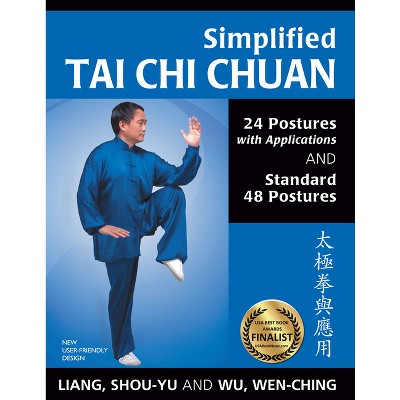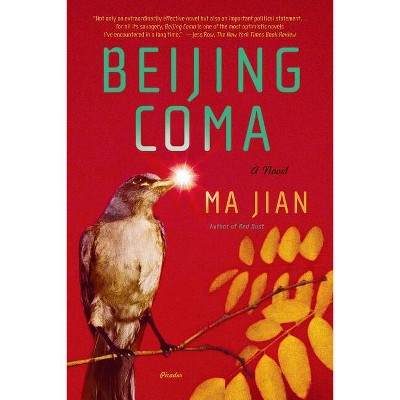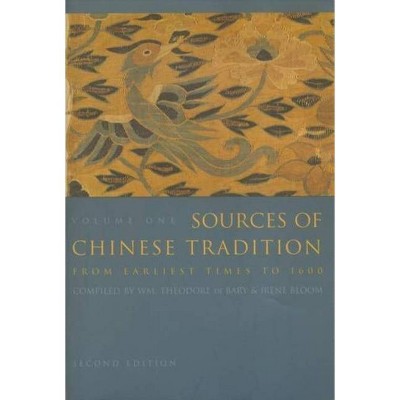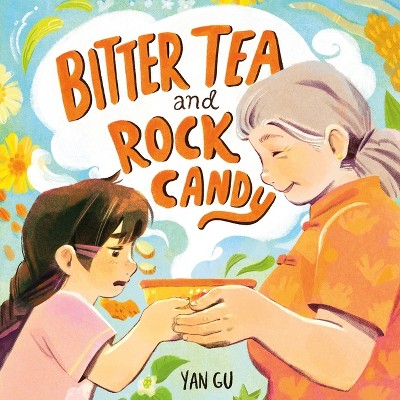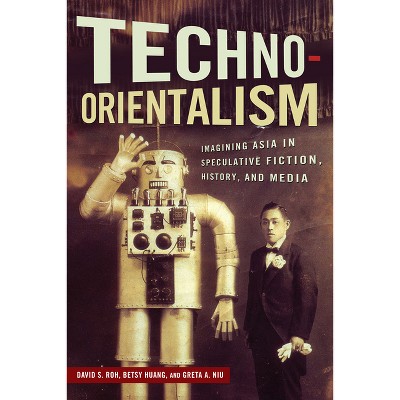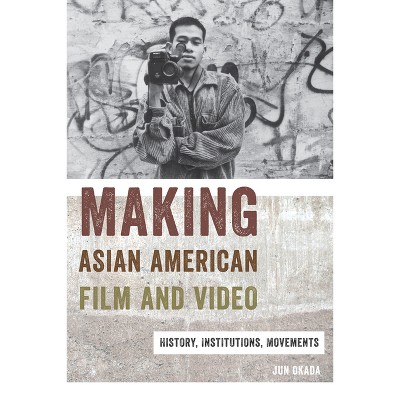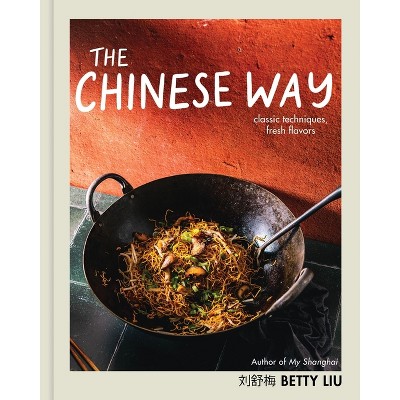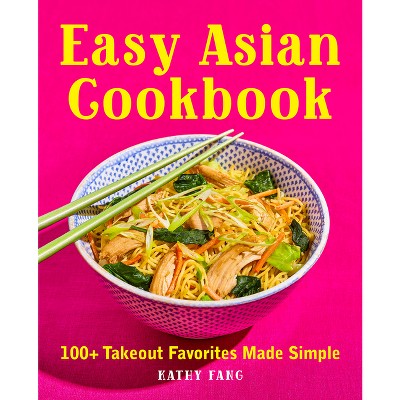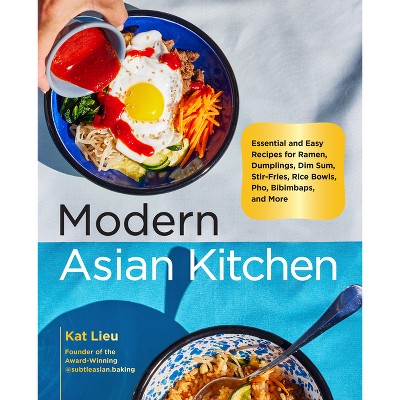Sponsored

From Canton Restaurant to Panda Express - (Asian American Studies Today) by Haiming Liu (Paperback)
$38.95
Out of Stock
Eligible for registries and wish lists
Sponsored
About this item
Highlights
- Received an Honorable Mention for the 2015-2016 Asian/Pacific American Awards for Literature, Adult Non-Fiction category Finalist in the Culinary History category of the 2016 Gourmand World Cookbook Awards From Canton Restaurant to Panda Express takes readers on a compelling journey from the California Gold Rush to the present, letting readers witness both the profusion of Chinese restaurants across the United States and the evolution of many distinct American-Chinese iconic dishes from chop suey to General Tso's chicken.
- About the Author: HAIMING LIU is a professor of Asian American studies in the Ethnic and Women's Studies Department at California State Polytechnic University, Pomona.
- 240 Pages
- Cooking + Food + Wine, Regional & Ethnic
- Series Name: Asian American Studies Today
Description
About the Book
Historian Haiming Liu takes readers on a compelling journey from the California Gold Rush to the present, letting us witness both the profusion of Chinese restaurants across the United States and the evolution of many distinct American-Chinese iconic dishes from chop suey to General Tso's chicken. Along the way, historian Haiming Liu explains how the immigrants adapted their traditional food to suit local palates, and gives us a taste of Chinese cuisine embedded in the bittersweet story of Chinese Americans.Book Synopsis
Received an Honorable Mention for the 2015-2016 Asian/Pacific American Awards for Literature, Adult Non-Fiction category
Finalist in the Culinary History category of the 2016 Gourmand World Cookbook Awards From Canton Restaurant to Panda Express takes readers on a compelling journey from the California Gold Rush to the present, letting readers witness both the profusion of Chinese restaurants across the United States and the evolution of many distinct American-Chinese iconic dishes from chop suey to General Tso's chicken. Along the way, historian Haiming Liu explains how the immigrants adapted their traditional food to suit local palates, and gives readers a taste of Chinese cuisine embedded in the bittersweet story of Chinese Americans. Treating food as a social history, Liu explores why Chinese food changed and how it has influenced American culinary culture, and how Chinese restaurants have become places where shared ethnic identity is affirmed--not only for Chinese immigrants but also for American Jews. The book also includes a look at national chains like P. F. Chang's and a consideration of how Chinese food culture continues to spread around the globe. Drawing from hundreds of historical and contemporary newspaper reports, journal articles, and writings on food in both English and Chinese, From Canton Restaurant to Panda Express represents a groundbreaking piece of scholarly research. It can be enjoyed equally as a fascinating set of stories about Chinese migration, cultural negotiation, race and ethnicity, diverse flavored Chinese cuisine and its share in American food market today.Review Quotes
"Liu perhaps makes more general readers aware that Chinese food in America is more than just a quick and inexpensive meal. It represents a rich and complex history of people, the food they eat, and the food they serve to others."-- "Digest"
"Liu's book is accessible and impressive with is scope....Overall, the book is one of the best American Chinese food history books out there and should be read by a wide audience in the United States and abroad."-- "Pacific Historical Review"
"This slender book delivers its tales with lively storytelling and well-placed details, with obvious relish for the telling anecdote, and a careful folding of such into its narrative."-- "China Review International"
"Haiming Liu turns the topic of restaurants into a discussion of Chinese American history and explores complex issues concerning race relations and ethnic identity, as well as political and regional affiliations among the Chinese in the United States."--Xiaojian Zhao "author of The New Chinese America"
"Liu explores the evolution of Chinese restaurants in the US as a window into global history. In short, clear chapters, the author traces the complicated paths of Chinese migrants while highlighting how both culinary insights and people have traveled back and forth between China and the US ... Highly recommended. All levels/libraries."-- "CHOICE"
About the Author
HAIMING LIU is a professor of Asian American studies in the Ethnic and Women's Studies Department at California State Polytechnic University, Pomona. He is also the author of The Transnational History of a Chinese Family: Immigrant Letters, Family Business, and Reverse Migration (Rutgers University Press).Dimensions (Overall): 9.0 Inches (H) x 6.0 Inches (W) x .5 Inches (D)
Weight: .72 Pounds
Suggested Age: 22 Years and Up
Number of Pages: 240
Series Title: Asian American Studies Today
Genre: Cooking + Food + Wine
Sub-Genre: Regional & Ethnic
Publisher: Rutgers University Press
Theme: Chinese
Format: Paperback
Author: Haiming Liu
Language: English
Street Date: September 9, 2015
TCIN: 91174905
UPC: 9780813574745
Item Number (DPCI): 247-50-6073
Origin: Made in the USA or Imported
If the item details aren’t accurate or complete, we want to know about it.
Shipping details
Estimated ship dimensions: 0.5 inches length x 6 inches width x 9 inches height
Estimated ship weight: 0.72 pounds
We regret that this item cannot be shipped to PO Boxes.
This item cannot be shipped to the following locations: American Samoa (see also separate entry under AS), Guam (see also separate entry under GU), Northern Mariana Islands, Puerto Rico (see also separate entry under PR), United States Minor Outlying Islands, Virgin Islands, U.S., APO/FPO
Return details
This item can be returned to any Target store or Target.com.
This item must be returned within 90 days of the date it was purchased in store, shipped, delivered by a Shipt shopper, or made ready for pickup.
See the return policy for complete information.
Frequently bought together
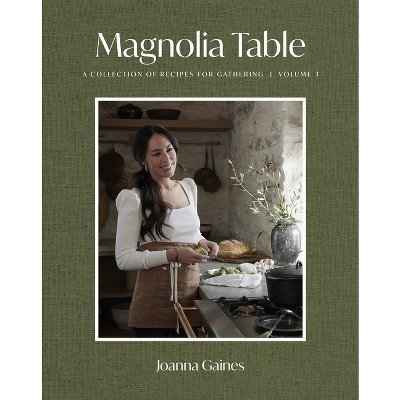
$24.24
Buy 2, get 1 free select books, music & movies
4.5 out of 5 stars with 276 ratings
Trending Non-Fiction

$15.68
Buy 2, get 1 free select books, music & movies
4.8 out of 5 stars with 190 ratings

$19.31
was $20.98 New lower price
Buy 2, get 1 free select books, music & movies
4 out of 5 stars with 60 ratings

$19.58
MSRP $29.00
Buy 2, get 1 free select books, music & movies
4.6 out of 5 stars with 13 ratings

$4.59
MSRP $7.99
Buy 2, get 1 free select books, music & movies
4.8 out of 5 stars with 120 ratings

$6.20
MSRP $10.95
Buy 2, get 1 free select books, music & movies
4.8 out of 5 stars with 33 ratings

$7.09
MSRP $9.99
Buy 2, get 1 free select books, music & movies
4.9 out of 5 stars with 46 ratings
